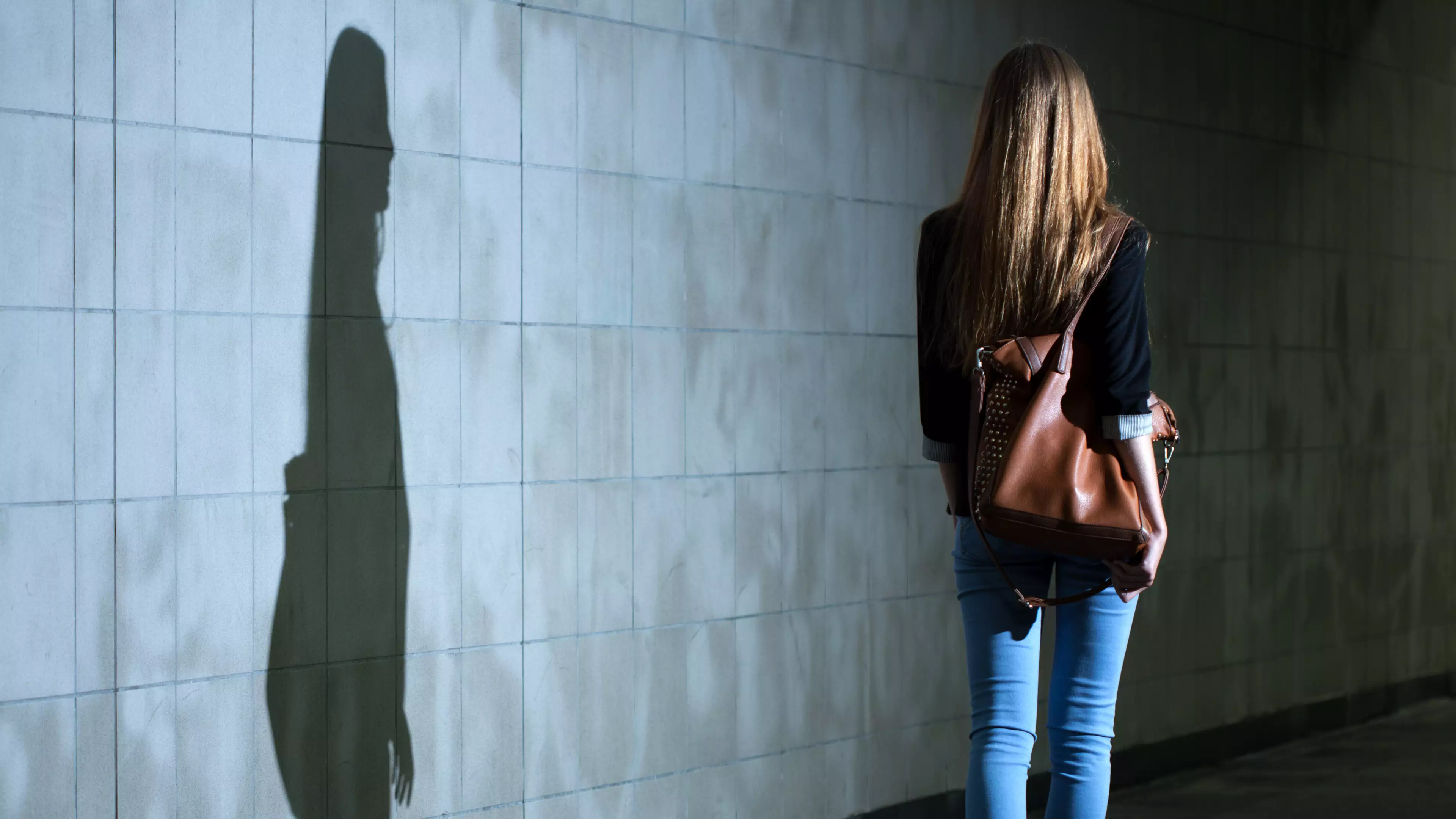
After the disappearance of Sarah Everard in south London last week, women are naturally feeling nervous at the prospect of walking the streets alone. But it's not on us to change our routines, it's on men to help us feel as safe as possible.
Sarah's disappearance has a sparked a fresh dialogue between the genders - specifically, how men can help women to feel safer on the streets, especially at night time.
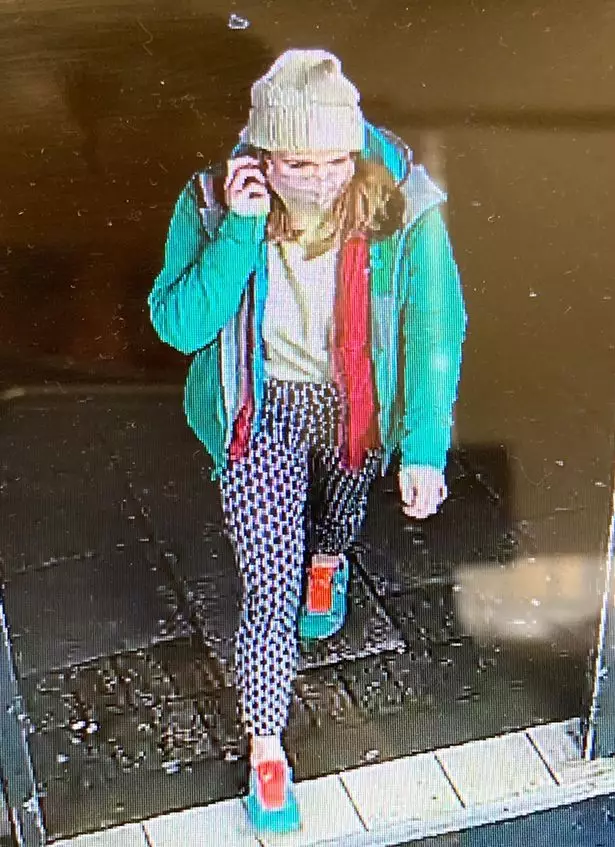
Advert
Sarah, 33, was last seen on Wednesday 3rd March, after leaving a friend's house in Clapham at around 9.30pm. The marketing executive was walking home to Brixton, which is around 50 minutes by foot. Her last known whereabouts were captured on Poynders Road, where she was seen on a residential doorbell camera.
A serving MET Police officer has been arrested on suspicion of kidnap and murder, and tragically it has been revealed that human remains have been found in Kent. Investigations are still ongoing.
Amid the heartbreaking news, one man wrote on Twitter: "I live less than five minutes from where Sarah Everard went missing. Everyone is on high alert".
Advert
Posing a question to women on his feed, he asked: "Aside from giving as much space as possible on quieter streets and keeping face visible, is there anything else men can reasonably do to reduce the anxiety/spook factor?"
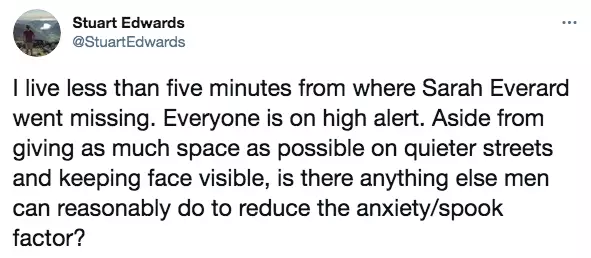
"If you're walking behind a woman, even at a distance, and it's dark, cross over to the other side of the road and walk there instead. I've had men do this a couple of times and it's like a huge weight lifted," suggested one woman in reply - sharing an idea echoed by many others.
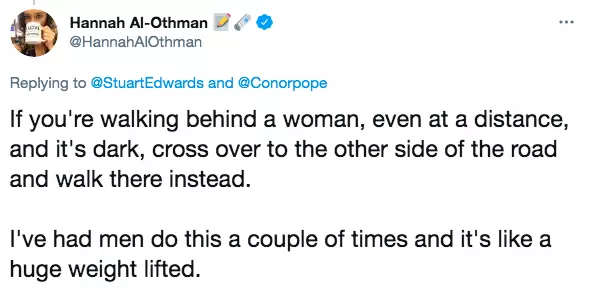
Advert
Meanwhile, another wrote: "To be honest just knowing that more men (or people!) would intervene or help if they saw something happen would be such an reassurance. I live in South London and have been bothered, harassed by men - and taken a fall during runs too - nobody has ever noticed/helped in 15 yrs."
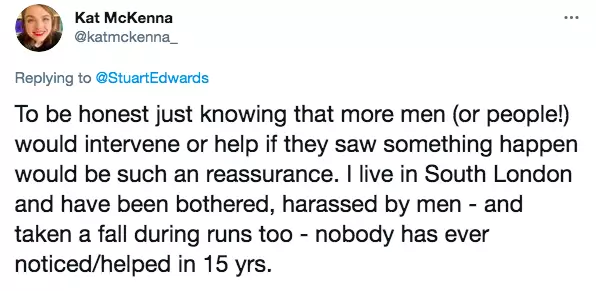
A third penned: "Thank you Stuart. This really means a lot. One of my male friends told me that if he feels he might be walking near a scared woman, he pretends to be, or gets himself, on the phone having a normal conversation. Silent people are more frightening than hearing someone talking".
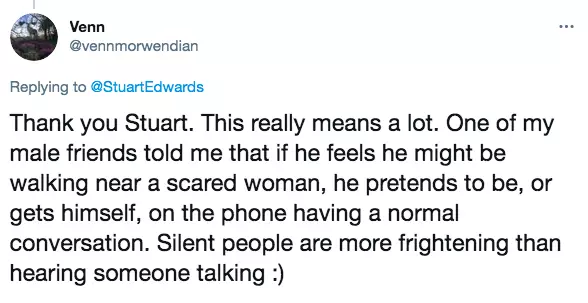
Advert
"Thank you for this tweet, a lot of us needed to see this today. I would add that if a female friend asks for you to accompany them on what you would normally consider a safe journey, never judge them or tell them they're being dramatic. Trust me, we wish we could go alone!" another Twitter user said.
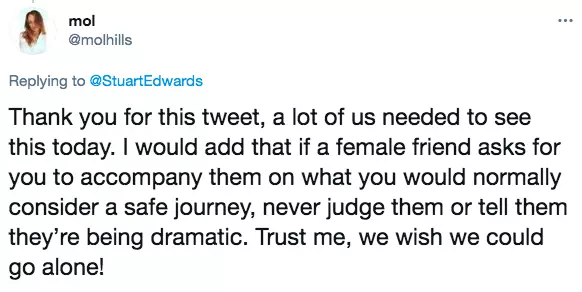
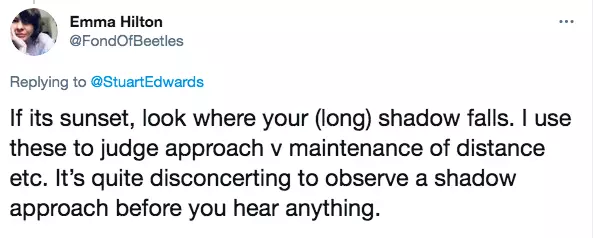
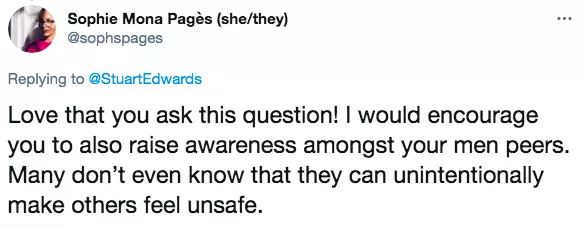
Advert
Speaking to Tyla, Farah Benis, founder of Catcalls of London and FFA Security Group, agrees the onus is on men to make women feel safe while out in public, adding it is "archaic nonsense" to expect women to avoid walking alone, or change their behaviour in the wake of this heartbreaking story, and others like it.
"It is absolutely not fair to put the onus onto women rather than men to protect themselves," she says. "We have been doing this for years already and yet, women are still subject to harassment and violence every single day, all around the world."
Maya and Gemma Tutton, founders of Our Streets Now, agree: "Women should feel safe and be safe in public space, no matter the time of day. This is our fundamental human right," they say.
"As Gina Martin pointed out on Twitter today: 'having women adjust their individual behaviour says one thing: attack the other woman. It isn't a solution, it only shifts the danger.'
"We need to focus on changing the culture which normalises this behaviour. We need to start challenging perpetrators for their behaviour. We need to fight for public sexual harassment to become unacceptable in our society.
"The sad truth is that no matter when, where and how we go about our daily lives, we are not safe."
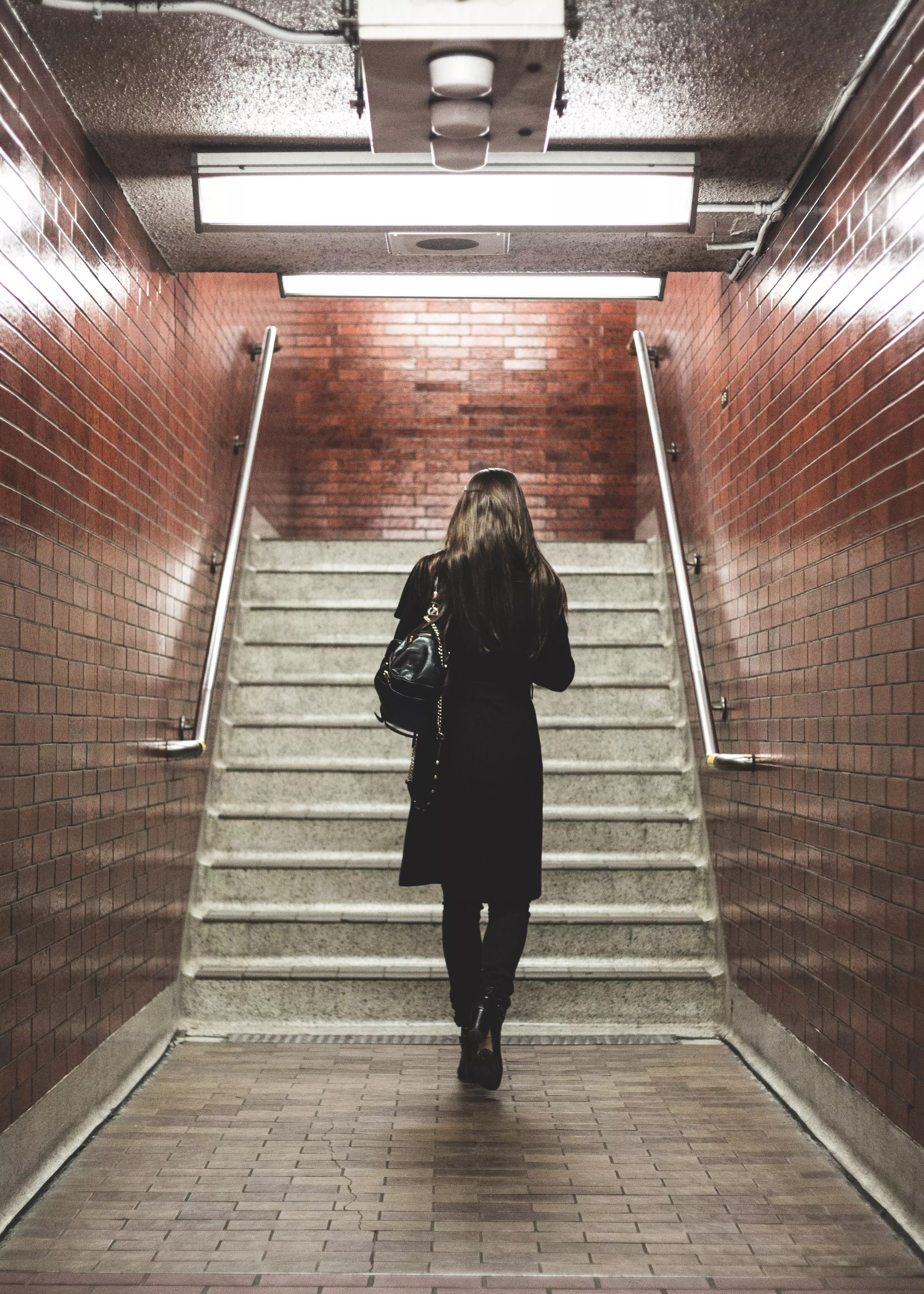
There are, of course, ways that people can protect themselves to some degree on the street, whether that is being conscious and aware of your surroundings, sticking to well-lit busy routes or staying in communication with others - but Sarah Everard did all of this on the night she disappeared.
"Individually, there is nothing women and marginalised genders can do to ensure that they are safe," Gemma and Maya add.
"The hundreds of stories shared on Twitter today in response to the disappearance of Sarah Everard are stark reminders of this. We are harassed whatever we wear and wherever we go".
Primarily, men need to do everything they can to support us, and to pointedly separate themselves from the very scary individuals we see harming women on the news.
Farah has shared some tips for men below, to ensure they are helping women feel as safe as possible when they're out and about.
How men can be good allies
- Keep your distance and don't make sudden moves towards women.
- Don't stare at or watch us. It is extremely unsettling being stared down by a man [on the street, or] on late-night public transport.
- Keep comments to yourself.
- Be an active bystander. If you see that a woman is uncomfortable with someone else's behaviour you can show your support by intervening. This can be as passive as standing in between a woman and her harasser to block their line of sight, or asking the woman if she is ok or needs assistance.
- Call out your peers and friends when they behave inappropriately. Widespread sensitisation is key to creating and instigating real change.
Follow Catcalls Of London here, and support Our Streets Now's campaign to make street harassment illegal, here.
Featured Image Credit: ShutterstockTopics: Sarah Everard, News, Life